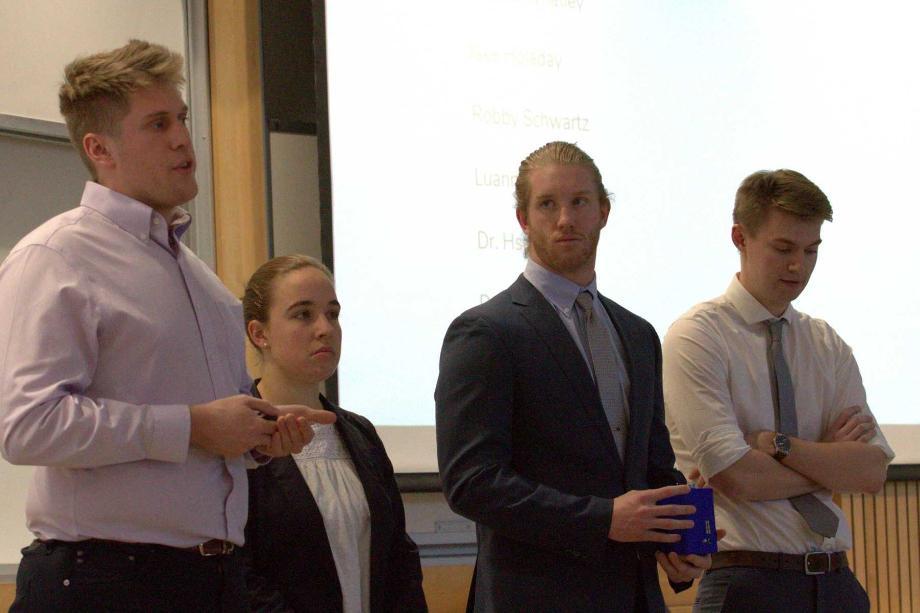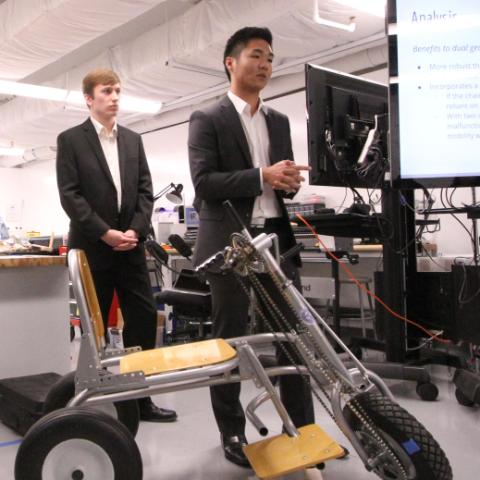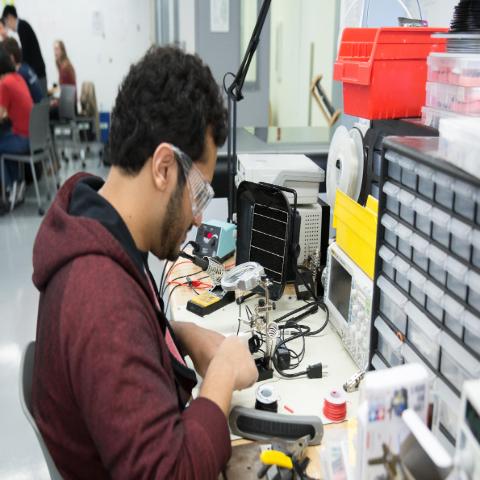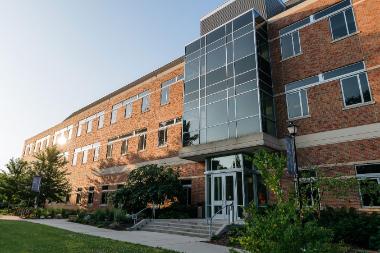Why Study Engineering?
Welcome to a world of creativity, rigor and can-do! Engineers turn scientific ideas and discoveries into practical solutions that serve humanity. You will learn to serve others by applying engineering knowledge to meet the practical needs of individuals, businesses and communities. And you emerge as one of the most highly sought-after employees around the world.
The Benefits of Wheaton's 3-2 Engineering Program
Five Years, Two Bachelor Degrees
Our 3-2 engineering program, which is one of the largest in the country, combines the best of two worlds – a vibrant Christian liberal arts training at Wheaton and a strong engineering education. In five years, you'll graduate with two Bachelor degrees - a Liberal Arts Engineering degree from Wheaton College and a specialty engineering degree from an ABET-accredited engineering program at one of more than 360 colleges and universities (you choose!).
Start at Wheaton
You’ll spend your first three years at Wheaton, which includes studying Christ at the Core liberal arts coursework and foundational engineering courses.
Finish at an Accredited Engineering School
Your last two years will be at a nationally recognized ABET-accredited engineering school, giving you all of the benefits of a large engineering program including a wide array of elective courses, terrific facilities, and well-established ties to industry.
Live at Wheaton, Study at a Nearby Illinois School
For those who would like an easy transition into their final two undergraduate engineering years, Wheaton has made a special arrangement with Illinois Tech so that students may run all finances and financial aid through Wheaton and live in Wheaton housing for the entire five years.
Wheaton also has a similar agreement with Northern Illinois University that streamlines the transfer process and allows for students to continue living in Wheaton housing all five years.
Learn more about Wheaton's partnerships with Illinois Tech and Northern Illinois University >

Hands-On Engineering Projects
All of our engineering courses include hands-on projects and elements of engineering design plus exclusive access to a dedicated design lab with state-of-the-art prototyping equipment.

Internships
Most engineering students complete at least one summer internship in their chosen field, often leading to permanent job offers after graduation. See internship opportunities >

Engineering Program Coordinator
Dedicated engineering program coordinator Jeff Yoder is here to guide you through the program.

The Wheaton College Engineering Lab, located in the Meyer Science Center, is a dedicated, flexible design lab with state-of-the-art prototyping equipment exclusively for engineering student use. The lab gives students the space and resources to design, prototype, and build a variety of projects.
Engineering Opportunities Outside the Classroom
- Ingenium Engineering Club - Ingenium strengthens Wheaton's engineering community by providing a place for students to work together. Ingenium engages students in extracurricular engineering design projects as well as competitions, seminars, and other events.
- Collaborative Research - Many Wheaton students get involved in research with Wheaton faculty or in partnership with scientists at nearby Fermilab or Argonne National Laboratory.
- Teaching Assistant Positions - A highlight for many of our majors is working as a paid teaching assistant in the department. Students may work alongside faculty in class, grade homework, run help sessions, or set up and manage lab equipment.
- Observatory Assistant Positions - Students staff our observatory and help other students and the general public view the night skies. Our observatory houses a 24" Planewave telescope with scientific-grade accessories and several smaller 8-16" telescopes.
- Global Programs and Studies (GPS): Semester study-abroad programs, summer study-abroad programs, spring break co-curricular trips, and international internships are always an option in Wheaton's program.
What Will I Learn?
Wheaton engineering students begin with a core set of engineering, math, physics, and chemistry courses. They then branch into a set of courses that prepare them for one of many fields of engineering. Wheaton engineering students have received degrees in a wide variety of specialty fields including:
- Aerospace Engineering
- Agricultural Engineering
- Architectural Engineering
- Bio-Medical Engineering
- Chemical Engineering
- Civil Engineering
- Computer Engineering
- Electrical Engineering
- Engineering Mechanics
- Environmental and Civil Engineering
- General Engineering
- Geotechnical Engineering
- Industrial Engineering
- Mechanical Engineering
- Systems Engineering
Consult the course catalog for a full list of engineering courses.
Engineering News and Stories






